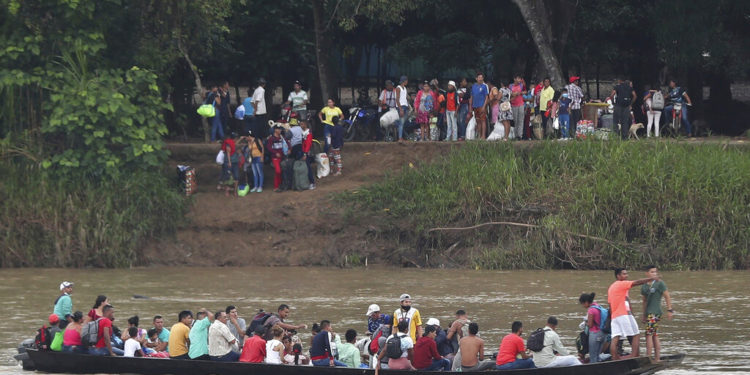This report was crafted by The Venezuelan Education-Action Program on Human Rights-PROVEA has the purpose to present a general diagnosis of the living conditions, health, and nutrition status of the indigenous people “warao” in Delta Amacuro, as well as to verify the human rights situation related to the said aspects.
The Warao are an indigenous population that lives in the islands and rivers of the Orinoco delta, in the northeast of Venezuela, as well as in some areas of the Essequibo territory, Guyana and Surinam. They were known since the 16th century as the Guaraúnos, but their self-determined name is Warao, which means “owners of the canoe” or “people of the beach”. As it is indicated by their self-determination, they live in an aquatic environment. They are dexterous builders of ships, great sailors and fishermen, as well as excellent crafters. Their presence in the area dates back to 8.000 years and is associated with the abundant presence of six species of palm plants, especially morichales (Mauritia flexuosa). The warao language is classified as isolated or independent, with three principal and discernible dialect variants.
The warao are settled in -at least- 459 communities located near rivers. The majority of these settlements are inhabited by 50-250 individuals, although there are communities with over 500. According to official census data, the warao population has reported a significant growth since 1936. Although in the census of 1936, 1941, and 1950, their population diminished, starting from 1950 there has been a trend of steady population growth. The 1972 census did not account for differences between indigenous and non-indigenous populations, so there is no available data. From 1950 until 2011 the annual population growth rate in the warao has been 3,18%, multiplying itself seven times in 61 years. In the 14th National Census of Population and Housing of 2011, the number of people that declared to belong to this indigenous population was 48.711, 24.848 of which were male and 23.923 were female.
In Venezuela, a historical lack of attention to indigenous populations has been aggravated by the effects of a complex humanitarian emergency that affects the entire country, especially the health and life of indigenous peoples. The collapse of the sanitary capacity as a result of the dismantling of the public health system, especially over the last 5 years, as well as the increase in poverty, hunger, malnourishment levels and the collapse of basic services, have massified healthcare problems, causing physiological and mental damage to the population as well as the loss of lives.
Translated by: Pedro Graterol




